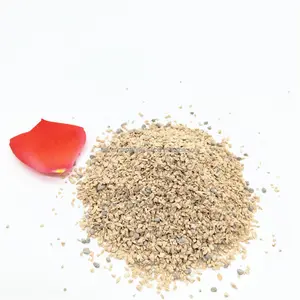
100% Natural Plants Materials Odor Control Millet Strong Clumping Fragrance Soya Tofu Pea Broken Sand


High Permeable Clear Epoxy Resin Bound For Outdoor Gravel Driveway Epoxy Aggregate Paving Stones Floor Coating Resin 20kg Kits





















Resin coated sand is a versatile material predominantly used in the casting industry. This specialized sand serves as a crucial component in the metal casting process, providing a medium for the molten metal to shape into the desired form. The composition of resin coated sand includes high-quality silica sand, which is then coated with a layer of resin. This coating enhances the sand's properties, making it an indispensable resource in various casting applications.
The diversity of resin coated sand types caters to different casting methods, including shell molding and no-bake molding. Each type is tailored to meet specific thermal requirements and metal types, ensuring compatibility and efficiency in the casting process. The applications of resin coated sand extend beyond traditional foundry uses; it is also employed in the automotive industry for engine components, in the construction of intricate machinery parts, and in the production of aerospace components, showcasing its broad utility.
The primary material in resin coated sand is silica, chosen for its high melting point and chemical inertness, which ensures stability under extreme temperatures. The resin acts as a binder, providing strength and flexibility. This combination results in a product that is not only durable but also capable of producing highly detailed and precise castings. The sand's non-reactive nature makes it suitable for casting a wide range of metals, including iron, steel, and non-ferrous alloys.
Utilizing resin coated sand in casting processes offers several advantages. Its enhanced flowability allows for better mold filling, while the resin coating ensures a smooth surface finish on the final product. The sand's high refractoriness minimizes defects in castings, such as sand fusion and burn-on, leading to a reduction in waste and rework. Additionally, the controlled curing time of resin coated sand allows for flexibility in the casting process, accommodating various production scales and complexities.
Modern advancements in the production of resin coated sand have led to more environmentally friendly options. These developments aim to reduce volatile organic compound emissions during the casting process, contributing to a greener manufacturing approach. Furthermore, the efficiency of resin coated sand in the casting process can lead to energy conservation, as it often requires less time and energy to achieve the desired results compared to traditional sand.
Selecting the appropriate resin coated sand supplier is crucial for ensuring that the specific needs of your casting projects are met. Suppliers on Alibaba.com offer a range of options, each with varying levels of thermal resistance, curing times, and particle sizes. It is important to assess the certifications and product specifications of suppliers to find the resin coated sand that aligns with your application requirements.